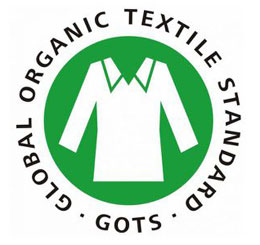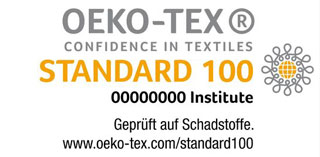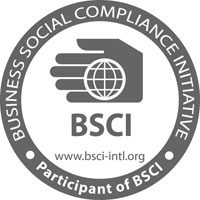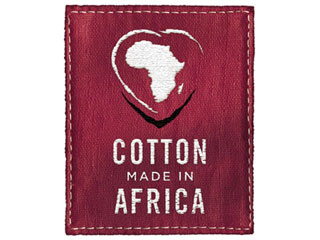Quality, social, environmental management
In May 2013, our group was one of the first importers to sign the Accord on Fire and Building Safety Agreement in Bangladesh.
Since October 2013 we participate in the project “Cotton made in Africa” of the Aid by Trade Foundation for Sustainable Agriculture and Forestry.
Based on Greenpeace’s Detox campaign, we are currently committed to the goal of eliminating the use and release of chemicals currently classified as priority chemicals in textile production in our supply chain by 2020.
Our team consistently accompanies all our production companies to the Oeko-Tex Standard 100 and in the implementation of the SteP and GOTS certification processes.
Certificates
GOTS (Global Organic Textil Standard) contains comprehensive guidelines for ecological and socially responsible textile production.
These globally recognized guidelines cover the sustainable production of textiles, from the extraction of organically produced, natural raw materials to environmentally and socially responsible production and transparent labelling. The GOTS logo and licensing system offers consumers credible quality assurance.
We have been GOTS-certified since 2018.
The STANDARD 100 by OEKO-TEX® is a globally uniform, independent testing and certification system for textile raw materials, intermediate and end products of all processing stages as well as for the accessories used.
The central claim is the development of test criteria, limit values and test methods on a scientific basis in order to prevent the use of environmentally harmful substances in clothing and textiles.
https://www.oeko-tex.com/en/apply-here/standard-100-by-oeko-tex
BSCI stands for Business Social Compliance Initiative, which was founded in 2003 by the Foreign Trade Association (FTA, called amfori since 2018). A code of conduct was developed here, the provisions of which are based, among on the standards of the International Labour Organization (ILO), the UN Human Rights Charter and national laws and regulations.
We have been an active member of AMFORI BSCI since 2009.
We undertake to recognize the provisions of the Code of Conduct and to implement them in our corporate policy with appropriate measures. All our suppliers must ensure that the amfori BSCI Code of Conduct is adhered to by their suppliers. Compliance with the Code of Conduct is regularly monitored by independent audit companies.
The Accord on Fire and Building Safety Agreement in Bangladesh was founded in April 2013 after the tragic collapse of the Rana Plaza building near Dhaka in order to sustainably improve the poor safety conditions.
The Hebestreit Group is a co-signatory of the first ACCORD and the ACCORD 2.0 agreement in Bangladesh.
Together, we work on the ground to ensure that fire, building and health protection measures are implemented, monitored and improved at textile factories in Bangladesh in the long term.
The agreement also strengthens the role of trade unions and workers’ rights.
Cotton made in Africa (CmiA) was founded in 2005 as an independent initiative by the entrepreneur Dr. Michael Otto. The aim of CmiA is to promote decent work for cotton farmers and factory workers at cotton ginning plants in sub-Saharan Africa, to protect the environment and to create transparency in the textile supply chain.
CmiA’s license revenues are used to enable small farmers to grow cotton in accordance with CmiA values, to improve their own living conditions and those of their families, and to conserve the earth’s natural resources.












